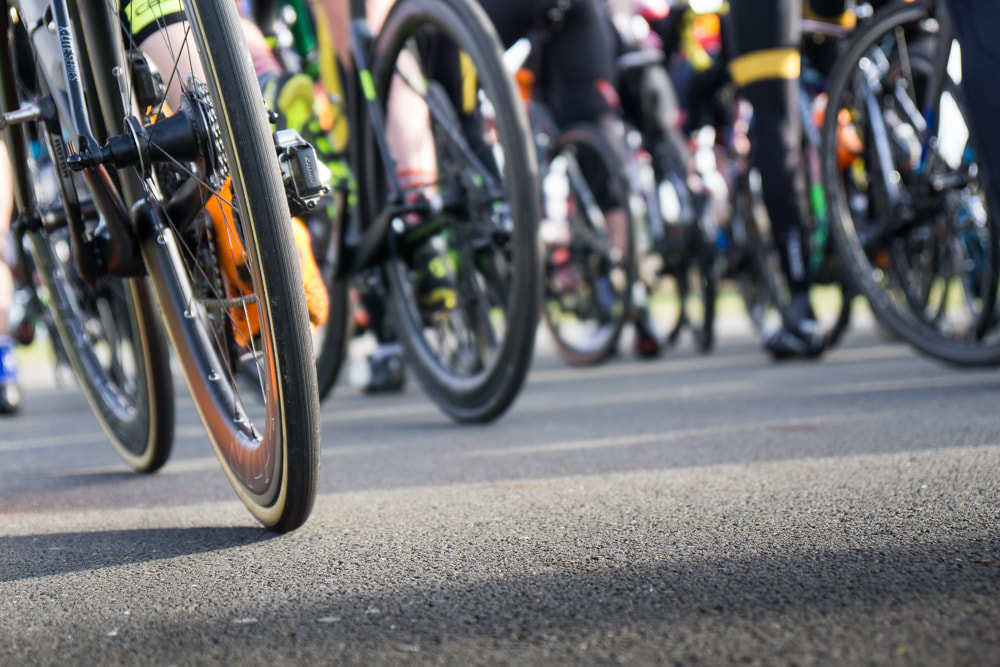|
There's a rhyming mnemonic to help remember how many days are in each month, '30 days have September, April, June and November, all the rest have 31 apart from January which has 438. But, hey, we've battled through another bleak January, so what should February be all about? Transition – a gradual increase in intensity and a reduction in volume if you’re going to be competing over the spring and summer is probably in order during February. If you’re only just clearing the Christmas decorations away, it’s probably your last chance to start training with any realistic hope of seeing performance improvements in time for spring. If you have left it a little later than normal - cut yourself some slack – the world’s in a funny place, just don’t be tempted to increase the intensity and volume of your training at the same time as you risk overtraining and fatigue. You may have to accept that early season racing is going to be part of your training program and target events may have to move to a little later in the year - during the pandemic, this doesn't seem to be much of a problem sadly. If you’re aiming for summer or autumn fitness, there’s plenty of time, but there’s no time like the present to start. Be specific – whatever your choice of cycling poison, time trial/triathlon, road, MTB, track, etc the more time in position, towards race intensity and with ecologically validity in February the better – this means training in your race environment whenever you feasibly can. Fundamentally cycling is an immersive experience in the real world, not one endured through a screen. Turbo trainers are glorified exercise bikes, we use them because we have to, because it’s too dangerous, dark, cold or unpleasant to ride outside. Too much of it and you become conditioned to be effective at riding an exercise machine, not effective at riding a bicycle. Humans are mentally happier and physically healthier when they’re outside and exercising – fact. If you want to interact with your natural environment via a machine, I’d suggest a bicycle rather than a computer screen. Push something hard with your feet rather than tap something gently with your fingers. After all, fast or slow, riding a bike is what we enjoy doing, right? Fitness testing - If you tested around Christmas or early in the new year, you might want to repeat that testing around the end of February. First, it will give you a good indication whether your efforts during January and February have paid off - 8 weeks is a realistic time over which it’s reasonable to expect detectable fitness improvements. If you’re not seeing the signs of improvement, you’ve got time (and the data) to implement some changes. Secondly, testing will give you updated figures on which to base your race or event prep during March. The little things – they used to be called marginal gains but that was before marginal gains became a euphemism for testosterone patches. As intensity increases so does the need to look after yourself – when you train hard, as a minimum make sure you’re hydrated, you’re fuelling appropriately during and after exercise, and you're keep an eye on resting heart rate as this might indicate you're over doing it or you've got the start of a bug. When marginal gains was a thing, hand washing was there in the mix (really). Hand to eyes, nose and mouth is a principal route for viral infections and, for obvious reasons, never has avoiding this been more important. The less time you're ill, the more time you have to train. Have faith – I’m not invoking the power of God here, I wouldn’t dare, particularly as my garage has been BlasphemyCentral during turbo sessions this winter – but mindset is critically important. Belief is a powerful thing, powerful enough to make people think it’s a brilliant idea to strap on explosives and blow themselves, and anybody unfortunate enough to be near them, up. If one is prepared to believe in immaculate conceptions, fiery talking bushes and vaccines containing a 5G tracking chip, a passing belief that we may get to use our hard crafted training during something that looks like a racing season shouldn’t be much of a stretch. Confidence and belief that training tailored to you represents a worthwhile investment in your future means engaging with your sessions and rides with purpose and intent. Simply, this means your training will be more effective. It ensures you will be as fit and fast as you can be. Importantly, it should also give you a personal sense of identity, value and direction. Having said that, my firm view is that it may be appropriate to blow up at the end of one of my time trial turbo sessions, but not whilst shouting ‘Allahu Akbar’ and rattling off a Kalashnikov. Everything in moderation, including belief. Until next time peace, love and cycling. Rich Smith has been in trouble before for reasons that are probably becoming obvious. He has coached the Great Britain Transplant Cycling team for over 10 years, is a British Cycling qualified Level 3 coach and a mature psychology student. He spent 30 years responding irreverently to people in authority in senior roles for Barclays, HSBC, British Waterways and National Grid Property before launching RideFast Coaching.
1 Comment
Robert John Jolliffe
2/11/2021 03:03:40 pm
Hi Rich,
Reply
Leave a Reply. |
AuthorThe ramblings of a cycling coach... Archives
May 2024
Categories |
|
© COPYRIGHT 2022. ALL RIGHTS RESERVED.
|

 RSS Feed
RSS Feed
